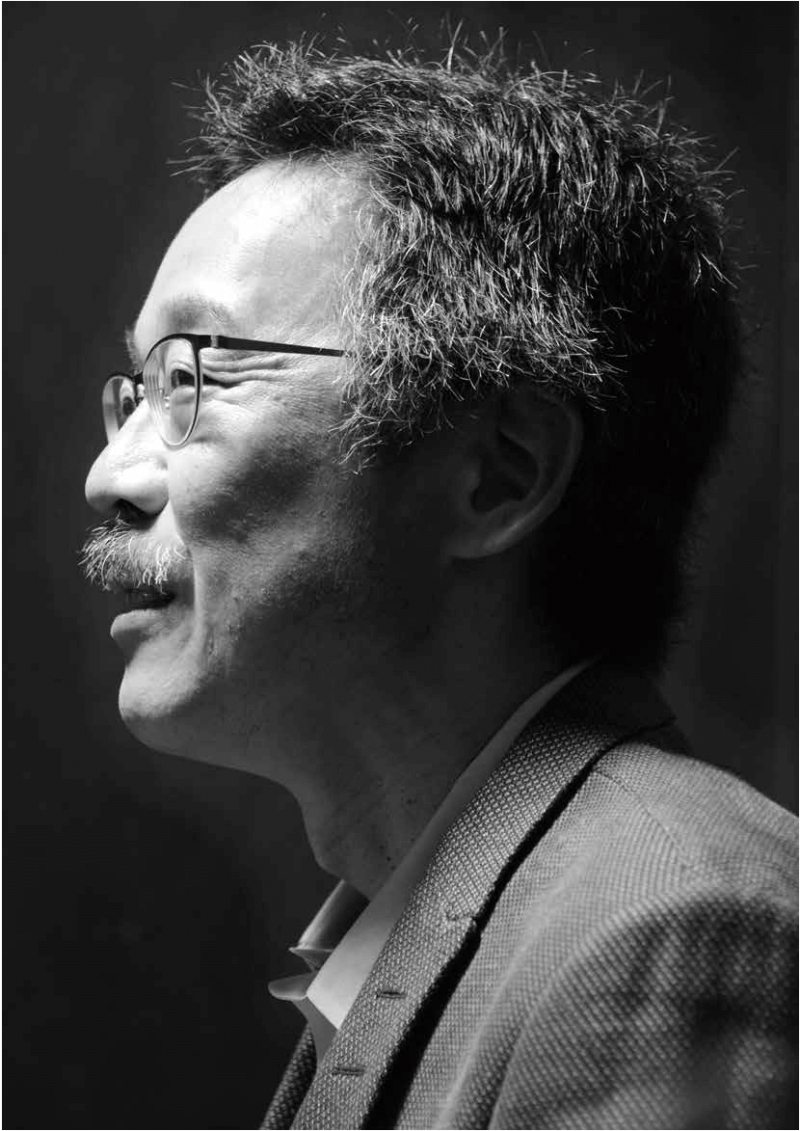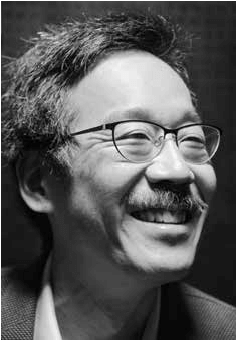Issue:

Ken Moritsugu
by TYLER ROTHMAR
The career of Ken Moritsugu, the Associated Press Japan bureau chief, has seen him live and work all over the world, and the story of his many professional moves is bound together by a natural curiosity and dedication to his craft.
Ken was born a third generation Japanese Canadian in Montreal, but moved to Philadelphia at the age of two when his father Henry, also a journalist, took a job at the Inquirer. The family later moved to New York, where Ken grew up, and where Henry remains an editor on the news desk of Long Island’s Newsday at the age of 82.
Although journalism seems to run in the Moritsugu family (his uncle Frank still writes for Canada’s Nikkei Voice at 94), Ken says it wasn’t always a clear choice. “But certainly it was always part of my life growing up. When I was a kid, my dad would bring me to the newsroom and the linotype operators would give me a little piece of metal with my name on it,” he recalls.
Moritsugu worked on the newspapers of his junior high and high schools in Long Island, and soon after he entered Princeton a rival interest in physics finally lost out to journalism. He majored in economics while stringing for area newspapers, interned at the Boston Globe and the Washington Post, and did a brief internship in Japan, reporting on the pharmaceutical market for a large firm.
He moved to the Japan Times in Tokyo in 1984, becoming a reporter on what was then the Political/Economics desk. He stayed for three years, covering Japan’s trade relations with the U.S. and Europe. “It was the period of intense Japan U.S. trade friction, the peak of the ‘Japan is No. 1, Japan is taking over’ era,” he says. “When you’d go out with people, you would debate what was Japan’s role in the world. It was sort of an exciting, frothy, intellectually stimulating time to be in Japan.”
Moritsugu was then accepted to a fivemonth internship at the European Community, the forerunner to the European Union. He left Japan in the fall of 1987, traveling by ferry to Shanghai, then from Beijing to Moscow through Siberia by train. He rode the rails through Europe and was proud when he made it to London without resorting to an airline. Once in Brussels, he interned in the EC press office, preparing news releases and background information for the press corps.
In retrospect, he says, his early days of travel and living abroad gave him fresh eyes on the U.S.: “America can be a very insular country, simply because of its size and dominance. It allowed me to see my own country in a different light.”
He returned home in 1989, this time to the St. Petersburg Times in Florida, where he covered “an unending supply of wild and crazy and woolly stories” in the local government, police and the courts. Three years later he left for Paris on a nine month journalism fellowship before returning to Long Island for a six year stint as a reporter at Newsday.
“There’s always a backstory that makes a black-and-white issue much grayer”

WHILE MORITSUGU LIKES THE writing process, what he really enjoys is the dialogue and ideological exchange of fieldwork.
While reporting for Newsday in Rwanda following the ethnic violence between the Tutsi and Hutu, he interviewed an old man who had lost his house in the violence, but was rebuilding. “He said, ‘You want to see it?’ and I said sure and he took off uphill at an incredible pace,” he remembers. Though half the old man’s age, he struggled to keep up on what turned out to be an impromptu mountain tour. Moritsugu cites the episode as an example of the unexpected joys of his trade.
“Reporting from afar is one thing, but to be on the ground and hear people’s stories there’s always a backstory that makes a black-and-white issue much grayer,” he says.
Moritsugu married Carmen Chan in 1999 and in 2000 joined the Knight Ridder newspaper chain in Washington D.C. as a national and economics correspondent. The couple moved to northern India in 2004, where Chan ran an NGO’s public health program. Working out of Delhi, Moritsugu strung for Knight Ridder, covering such stories as the Indonesian tsunami, and wrote for publications including USA Today and Congressional Quarterly.
He joined the AP in Bangkok in 2007 as enterprise editor, heading large scale projects and features such as “China’s Reach,” a data driven, multi faceted look at that nation’s growing clout. In 2013, Moritsugu was named chief of the AP’s Tokyo bureau, where he works to orchestrate text, photos and video for the internet’s shifting formats. While there are fewer chances as chief to engage in the on the ground reporting that he loves, Moritsugu says he enjoys exploring new ways of telling stories with his team, and he’s grateful for the influence the profession has had on his life.
“Journalism is challenging. The pay is not great, but it’s really given me this wealth of experiences in life, this incredible opportunity to go to so many places and meet so many people and learn so much about the world. And I’m just thankful and grateful as a person to have had that opportunity, ” he says.
Tyler Rothmar is a Tokyo-based writer and editor.

